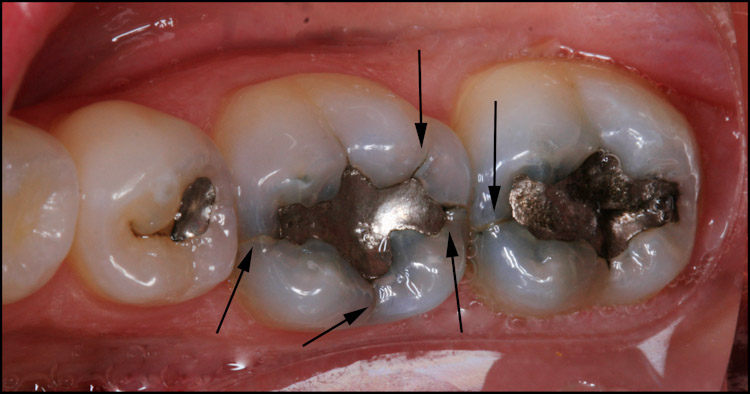Why You Shouldn’t Ignore Cracks in Your Teeth
One of the most common reasons that patients come to us for dental emergencies is cracked and broken teeth. For some reason, this always seems to happen on weekends, when you’re out at dinner, or right after we’ve closed for a long weekend – go figure. This is avoidable, though, if you act preventively. Here’s the key, though, and this is one of the reasons we use digital photography so extensively to communicate with our patients — very often these teeth won’t hurt at all until they break. Don’t ask me why – no one really knows. But so often, what we’ll hear is, “Doctor Payet, it never bothered me at all, and then last night I was chewing on a banana and a big chunk of the tooth just broke off!”
Fix a Tooth Before or After It Breaks If It Doesn’t Hurt?
Depending on whom you see, different dentists will tell you different things. Many doctors still go by the philosophy of, “If it ain’t broke and it don’t hurt, leave it alone.” The problem with that philosophy (in my humble opinion) is that when it finally does break, it will take more time, cost more money, and until it’s fixed is often pretty painful than if it had been treated before it broke. If it’s a small crack, treat it with a nightguard and a filling. If it’s a big crack, treat it with a nightguard and a crown. But if it breaks, you might well need a nightguard, root canal, build-up filling, and a crown. And all because the small crack wasn’t treated with a filling.
Research tells us that teeth with tooth-colored (composite resin) fillings crack just as often as those with silver fillings. My experience over 15 years, however, tells me that teeth with LARGE silver fillings crack much more frequently than with composite fillings. But even the bonding process can’t stop a crack from forming if the stress isn’t relieved. I’d like to show you some examples of what we often see:


It does seem that these cracks form around old fillings most of the time……..but they can even happen in teeth that have never had any work done. All it takes is a lot of force (usually grinding and/or clenching your teeth) and enough time. Here’s an example from a young man in his late 30’s who clenches his teeth so hard that he split this back molar completely in 1/2. It had NEVER had any dental work, and in fact, it didn’t even have a cavity. But he split it so far that it had to be extracted. Obviously I recommended a nightguard to help him not do this to any other teeth!
A NTI Nightguard Can Stop Cracked and Broken Teeth & Save You Money
So what’s my point? Simply this: if you have been told that your tooth is cracked, at the VERY least, please make sure that you have a nightguard, because clenching and grinding of your teeth is the most common cause. But also — get it treated BEFORE it breaks. It’s less expensive and a lot less uncomfortable that way. And you won’t have to worry about it breaking over that long weekend or holiday when we’re out of the office.
To make an appointment:
Request an Appointment Online or call us at 704-364-7069.
We’ll look forward to meeting you soon!







